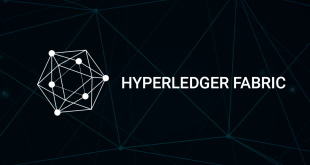In today’s data-driven world, efficient data management is paramount for businesses and organizations. The traditional centralized data management approach, while widely used, has its limitations, including single points of failure and vulnerability to data breaches. However, a revolutionary solution has emerged in the form of decentralized data management, leveraging the power of blockchain technology. In this comprehensive blog, we delve into the world of decentralized data management, exploring blockchain solutions that are reshaping the landscape of data management as we know it.
Understanding Decentralized Data Management
Decentralized data management, at its core, involves distributing data across a network of nodes rather than relying on a single central authority. Blockchain, the underlying technology powering cryptocurrencies like Bitcoin, is the driving force behind this decentralized paradigm. By storing data in a tamper-resistant, transparent, and distributed ledger, blockchain offers unprecedented security and reliability.
The Role of Blockchain in Data Management
Blockchain’s unique features, such as immutability and consensus mechanisms, make it an ideal candidate for secure data management. Every block in the chain contains a cryptographic link to the previous block, creating an unbroken chain of data. This tamper-resistant design ensures the integrity of the stored information, instilling trust among users.
Advantages of Decentralized Data Management
Enhanced Data Security
Decentralization eliminates single points of failure, reducing the risk of data breaches and unauthorized access. Each block in the blockchain is cryptographically linked to the previous one, making it nearly impossible for malicious actors to alter past records without consensus.
Increased Data Transparency
Blockchain’s transparent nature enables all authorized parties to access and verify the data, promoting trust and accountability. This transparency is particularly beneficial in industries like supply chain management and healthcare, where stakeholders require real-time access to crucial information.
Improved Data Integrity
Decentralized data management ensures data integrity by preventing unauthorized alterations. The consensus mechanisms employed by blockchain networks make it extremely challenging for any single entity to manipulate the data, maintaining the accuracy and reliability of records.
Enhanced Traceability
The decentralized nature of blockchain enables seamless tracking of data throughout its lifecycle. From origin to current state, each data point can be traced, providing valuable insights and facilitating compliance with regulatory requirements.
Blockchain Solutions for Data Management
Blockchain-based Databases
Blockchain-powered databases combine the benefits of traditional databases with the security and transparency of blockchain technology. These databases offer high-performance data storage and retrieval, while data immutability ensures data integrity.
Decentralized File Storage
Blockchain-based file storage systems distribute data across a network of nodes, eliminating the need for a central server. This decentralized approach enhances data redundancy and availability, making it an attractive solution for data-intensive applications.
Smart Contracts for Data Governance
Smart contracts are self-executing contracts with predefined rules. Leveraging blockchain, organizations can automate data governance processes, ensuring compliance and enhancing data security.
Common Challenges and Potential Solutions
Scalability Concerns
Blockchain networks, especially public ones, face scalability challenges due to the consensus mechanisms. However, ongoing research and the advent of Layer 2 solutions show promise in addressing scalability issues.
Regulatory Compliance
With data spanning borders, compliance with diverse regulations becomes complex. Collaborations between regulators and industry players are essential to establish a cohesive regulatory framework for decentralized data management.
Final Words
The rise of decentralized data management powered by blockchain solutions offers a paradigm shift in data security, transparency, and integrity. Embracing this technology can empower businesses and organizations to navigate the ever-evolving data landscape with confidence.
Commonly Asked Questions
Q1: Is decentralized data management suitable for all industries?
A: While decentralized data management has its advantages, its suitability depends on the specific needs and regulatory constraints of each industry. Sectors dealing with sensitive information may find it particularly beneficial.
Q2: Are blockchain-based databases slower than traditional databases?
A: Blockchain-based databases may have slightly slower write times due to the consensus mechanisms, but they excel in data security and immutability.
Q3: How do smart contracts ensure data governance?
A: Smart contracts enforce predefined rules and conditions, automating data governance processes and ensuring compliance without the need for intermediaries.
Q4: Can blockchain solutions handle large-scale data storage?
A: While blockchain networks are continuously improving scalability, decentralized file storage solutions offer viable options for large-scale data storage.
Q5: What steps can organizations take to ensure data privacy on a decentralized network?
A: Organizations should implement robust access control mechanisms, encryption, and anonymization techniques to safeguard data privacy on decentralized networks.
 webfily
webfily



